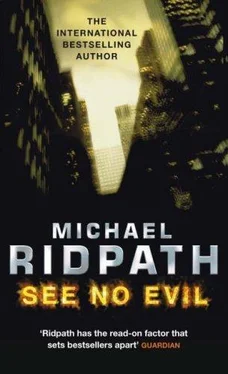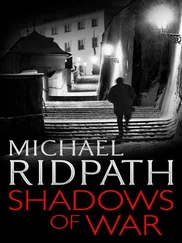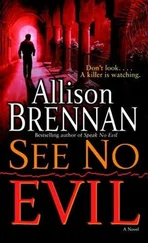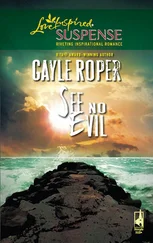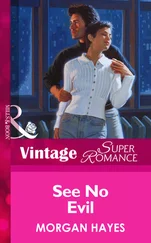As Calder left the Bloomfield Weiss building his mobile phone rang. It was Kim. She sounded agitated.
‘What is it?’ Calder asked.
‘When are you getting back?’
‘I was planning to fly up this afternoon. Why? What’s up?’
‘Well, hurry up. I’ve just been talking to the police. I was right, I knew I was right. The plane crash wasn’t an accident. It was sabotage.’
July 11, 1988
Went to a board meeting of the Project today, the Guguletu Literacy Project. Nimrod drove me: I don’t like driving there by myself since the riots of a couple of years ago. In fact, we’ve only gone back to holding the board meetings in the township in the last few months; until recently the place was a no-go area for whites. Guguletu doesn’t exist in the mind of white South Africa. It isn’t even on the map, despite the fact that a couple of hundred thousand people must live there. It’s a sprawling warren of single-room shacks made of wood and corrugated iron, each one crammed with people taking up every inch of floor space to sleep on. For some reason the dominant color seems to be pistachio green. But the township is teeming with life: children running around everywhere, chickens scratching about, even the odd cow, which still retains its importance as a symbol of wealth. There are smells of cooking and of filth, sounds of chatter, children’s laughter and everywhere the beat of “location music,” the same stuff that Finneas picks out on his harmonica at home.
Miriam Masote founded the Project ten years ago to try to teach adults to read and write. Her father has been in jail on Robben Island for nearly thirty years now. Her view is that when enough black South Africans can read they will develop a voice that the rest of the world will have to hear. I hope she is right. There are hundreds, maybe thousands of inhabitants of the township who can now read thanks to her. She does an amazing amount with very little money. That’s where I can help, not just by giving them some of our money, but by raising funds from the States. Mom does a good job with the churches in Minnesota.
Libby Wiseman was on excellent form. That woman is a hoot. God knows, you need a sense of humor in a place like Guguletu. She is pretty outspoken about the regime, and I think she’s been arrested a couple of times, but she seems to have avoided a banning order somehow. She gets very upset about greedy capitalists in South Africa, without ever actually mentioning Neels by name. Perhaps she’s a communist? I wonder if there are any of the SACP left in South Africa, or whether they are all in jail or in exile. She and I get on well, though: she’s one of the few South African women who I can call a friend. I can’t imagine her putting Neels and me on any execution list, although presumably that’s decided by the leaders in exile.
After the meeting she asked me back to her house for a drink, but I said no. I just feel like curling myself up into a ball and hiding away at Hondehoek.
I’ve been thinking about Neels a lot these past couple of days, thinking about when we first met. It was the moment that defined my life. It was the late sixties, I was a year out of graduate school and I was fired up about all the injustices of the world, foremost among them apartheid. I’d written a couple of successful freelance articles for Life magazine on student protest movements, and I planned to try to sell them an article on the press and apartheid in South Africa. I had a friend whose father was the Time correspondent and I managed to arrange to stay with him in Johannesburg. He helped me get interviews with some of the editors and owners of the South African newspapers.
With the exception of a couple of the Afrikaners whose support for apartheid was clear, all the newspaper men I met were blind, blind to what was going on in their country. Their political outlook as far as I was concerned was “See no evil.” And then I met Neels.
I flew to Cape Town for the meeting, which was at the Cape Daily Mail’s offices. I was curious, but not hopeful. I knew of the Mail’s reputation for uncovering scandals, but then Neels had an Afrikaans last name, and by that stage I had low expectations of newspaper owners.
He attracted me the moment I saw him. He had power over women. He had it then, when he was in his late thirties, and he still has it now even though he is over fifty. It was, or is, a kind of strength, strength that can protect rather than threaten, a self-assurance that falls short of vanity. Broad shoulders, square jaw and those piercing, honest eyes. I was smitten.
He wasn’t, or not at first. Oh, he paid attention to me, men did in those days. He explained how he, an Afrikaner, came to be the owner of the second largest English-speaking newspaper group in South Africa. He told me about his father’s little paper in Oudtshoorn. How he was one of five children, how he got a scholarship to the University of Stellenbosch and with his father’s encouragement a Rhodes Scholarship to Oxford. How he met Penelope there, and how she had forced him to focus on what he always knew to be the case: the injustice of apartheid. They were married. Her family were English-speakers, wealthy investors in gold mines with a mansion in Parktown in Johannesburg, and suspicious of the Afrikaner from the Karoo. But they soon warmed to Cornelius, and her father funded him to buy a bankrupt newspaper group that included the Durban Age, the Johannesburg Post and the Week in Business. He turned all three papers around and a couple of years later bought the Cape Daily Mail. He was just thirty at the time.
He answered my questions with passion and in detail. His view was that the most effective opposition to apartheid was the press, in particular the English-language press. His role as owner was the guardian of that voice of opposition and sanity.
I came back at him. How could the press in a country like South Africa ever be truly free? And if it wasn’t, if his journalists were locked up for telling the truth, wasn’t he merely supporting the system by working within it?
Neels told me I was suffering from the same lack of understanding as all the English-speaking liberals. This was the fourth time I had been told this, and I just lost it. I was fed up of being patronized by white Nazi racists. I railed on. Then I suddenly noticed that Neels was trying to suppress a smile. Not only that, but he was interested in me. Not as a twenty-something blonde with long legs, but as a woman. As a person. This angered me more, but also disconcerted me and so I shut up.
“I’m sorry,” he said. “I didn’t mean to insult you. Let me tell you what I did mean.” He fixed me with those piercing blue eyes of his. “The fatal flaw of the apartheid regime, what will ultimately bring about its downfall, is its certainty that it’s morally right.”
“How can apartheid ever be morally right?” I interrupted.
“It’s a twisted morality, backed by a twisted understanding of Christianity. But if the regime is to continue to believe that it is legitimate it needs to maintain some semblance of justice, of right and wrong. There has to be an independent judiciary, a parliament where opposition is allowed to speak, and a free press.”
“But that’s incompatible with a government that’s elected by a small minority of the country, that locks people up and tortures them without trial!”
“Precisely. As time goes on that incompatibility will become more and more apparent until the majority of the National Party can’t hide from it anymore. Then they will hand over power. Voluntarily.”
“So you’re just playing a part in the charade of a fair government?”
“No, not at all. It’s Afrikaners like me who will bring this regime to a peaceful end. It might take ten years, it might take fifty years, but it will happen. Independent judges, critical politicians, a free press, lawyers who believe in justice, doctors who tell the truth about the injuries they treat. In time we will be able to show our countrymen that they cannot support apartheid and still think of themselves as moral human beings. Blowing up a railway station won’t tell them that, quite the reverse. And I don’t want to see my country go up in flames in a bloody revolution.”
Читать дальше
